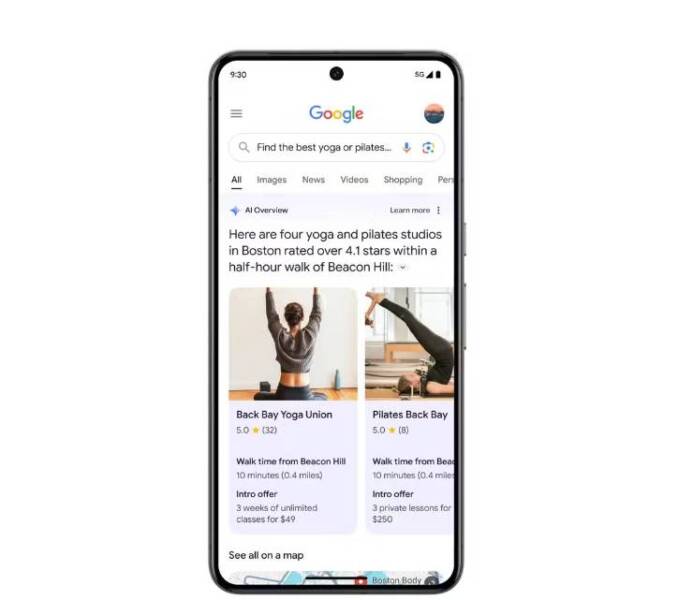Google’s new search feature, which uses artificial intelligence (AI) to generate texts (or topics) in response to user searches and is now available in the United States, avoids the news of the day and controversial or high-profile topics.
The expansion of the use of AI in Google’s search engine worries content producers because of the loss of space for links to original sources of information.

To use the tool, you must authorize the search service to activate the search labs program. In the service description, Google itself says that “quality and availability may vary”.
Once authorized, the new tool overlays AI-generated text over the traditional related search links that have characterized Google search until now. Text presentation is usually done in blocks.
In some cases, it is necessary to give the “generate” command on a button to access the text created by the AI. In others, without much distinction in topic, the summary appears on the screen automatically.
For both cases, the service quickly shows a simple summary text, with a few related sites below (which includes web discussion forums, blogs, government pages and a few news sites). In some cases, there is a second block of texts or topics.
Far from polarization
The service does not display AI texts at the top of the search page in queries about vaccinating children, party politics or the origin of the coronavirus, for example. In these cases, conventional search results are displayed, outside the new tool, with links to news or websites related to the topic.
The tool does not detail political topics, whether American or Brazilian. The AI, for example, has an automated response when the user asks “Why was Michael Jackson on trial?”, but does not provide answers to the question “Why is Donald Trump on trial?”.

The tool also does not detail how an electoral survey is carried out, but it explains how clinical studies for new medicines are carried out.
Other topics that are targets of polarization, such as vaccinating children, are also left out. When asked whether it is necessary to vaccinate your children, the AI does not give any summary. But when asked “should we give vitamins to children?”, consider that most boys and girls do not need supplementation if they eat a wide variety of foods.
Covid also appears in a limited form. The new AI Overviews feature offers no answer when asked whether “China developed the coronavirus”, nor how it infects humans.
Still on the health topic, there is no suggested text on ozone therapy, classified as ineffective by medical societies. The AI, however, responds promptly if asked about how common painkillers, such as ibuprofen, work.
What Google says
In a post on its official blog, Google argues that AI-generated summaries will give users access to “a greater diversity of sites to get help with more complex questions.”
According to the company, the links included in the summaries have more clicks than when presented in the conventional consultation space, according to internal experiments.
“As we expand this experience, we will continue to focus on sending valuable traffic to publishers and creators. As always, ads will continue to appear in dedicated spaces throughout the page, with clear labels to distinguish between organic and sponsored results,” it says the text, signed by Google Search leader, Liz Reid.
TechnologyHQ is a platform about business insights, tech, 4IR, digital transformation, AI, Blockchain, Cybersecurity, and social media for businesses.
We manage social media groups with more than 200,000 members with almost 100% engagement.









































